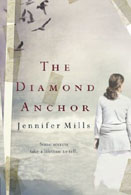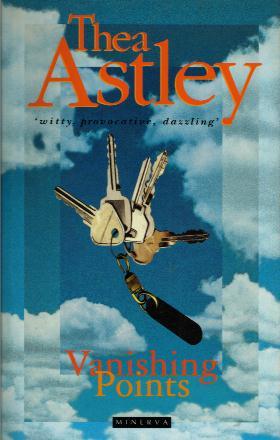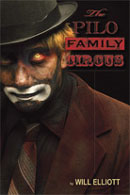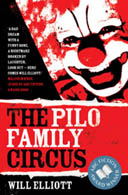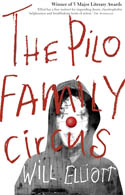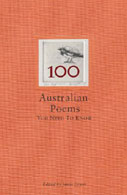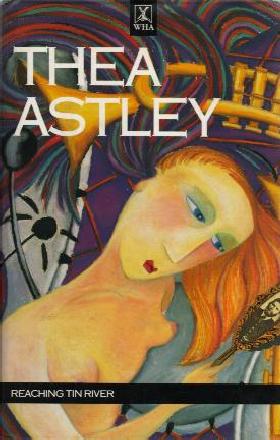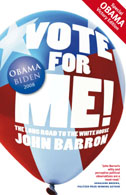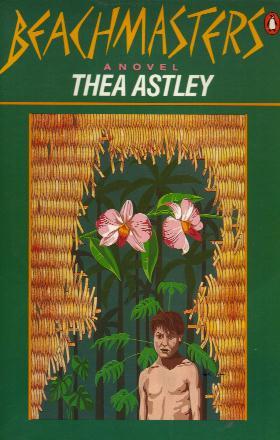Although originally written in 1839, this poem by "Frank the Poet" (Francis Macnamara) was first published in 1900 and then in an anthology of Australian poetry in the 1980s. It appears that the poem survived via an oral tradition and may have been finally published in a very different version from that first written - it's impossible to tell. The fact that it has lasted for around 170 years attests to its power to convey the convict experience, or, at least, the hopes of the Australian convicts.
The poem tells the story of Frank the Poet (the alter ego of the poet himself) who dies and finds himself on the banks of the River Styx across from the gates of Hell. Needless to say, Frank considers that he's suffered enough during his mortal life and thinks he's somehow come to the wrong place. As Hell's gatekeeper, Pope Pius 7th, tells him: "This place was made for Priests and Popes/'Tis a world of our own invention", and as Satan himself points out: "...I detest and hate the poor/And none shall in my kingdom stand/Except the grandees of the land." A roll-call of those who have injured and persecuted him is then presented to Frank, who seems quite pleased that they are all to suffer eternal punishment. Even Captain James Cook is tied to a fiery stake, sentenced for no more than discovering New South Wales. Frank finally ends up in heaven and is feted by Jesus, Peter, Abraham and Abel, only to wake at the end of the poem and to find it was all a dream.
It's hard to get a grip on the worth of a poem such as this from a distance of 170 years. The whole story is rather trite from our perspective: a wish-fulfilment dream, in which the dreamer is the innocent victim. The one thing that comes across loud and clear is the hatred that Macnamara felt for the convict settlement and army authorities: sulphurous lakes, fiery stakes and chairs, and rivers of boiling lead.
And all those fiery seats and chairsIt's all classic fire and brimstone stuff.
Are fitted up for Dukes and Mayors
And nobles of Judicial orders
Barristers, Lawyers and Recorders
Here I beheld legions of traitors
Hangmen gaolers and flagellators
Commandants,Constables and Spies
Informers and Overseers likewise
In flames of brimstone they were toiling
And lakes of sulphur round them boiling
Hell did resound with their fierce yelling
Alas how dismal was their dwelling
Macnamara probably felt he had due cause to wish such punishments on his gaolers. Born in 1811 in Ireland he was transported to New South Wales in 1832 after being convicted of theft, though there is a suspicion that he was a political agitator. If that last is true, he would have been targeted by the authorities from the start. He did abscond
several times and received numerous floggings and other punishments. Little else is known about him other than he was shifted from NSW to Port Arthur in 1842. He appears to have changed his ways there - probably under the threat of further depravations, and believe me, Port Arthur is a pretty scarey place - and was given his freedom in 1847. After that he disappears from the record, although Marcus Clarke does write about a balladeer in a dosshouse in Melbourne in 1868 who might have been Macnamara. Less than 20 poems have been attributed to him.
Text: "A Convict's Tour to Hell" by Francis Macnamara. [I dropped the original link to this as it had a missing line, and several punctuation variations.]
Author bio: Australian Dictionary of Biography
Publishing history: the first known publication of the poem was in the Cumberland Times, December 27, 1900. It subsequently appeared in The Penguin Book of Australian Satirical Verse edited by Philip Neilsen (1986), The New Oxford Book of Australian Verse edited by Les Murray (1986 and 1996), The Sting in the Wattle : Australian Satirical Verse edited by Philip Neilsen (1993), The Penguin Book of Australian Ballads edited by Elizabeth Webby and Philip Butterss (1993), and Australian Verse: An Oxford Anthology edited by John Leonard (1998).
Notes: This work is also known under the alternative titles: "A Tour to Hell", "Come all you prisoners of New South Wales", and "Ye prisoners of New South Wales".
Next five poems in the book:
"The Beautiful Squatter" by Charles Harpur
"Taking the Census" by Charles R Thatcher
"The Sick Stockrider" by Adam Lindsay Gordon
"My Other Chinee Cook" by James Brunton Stephens
"Bell-Birds" by Henry Kendall
Note: this post forms part of my series on the poems contained in the anthology 100 Australian Poems You Need to Know edited by Jamie Grant. You can read the other posts in this series here.
